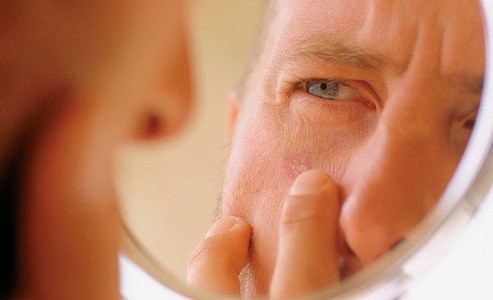We’re in the thick of summer, and inevitably that means we need to have a discussion about protecting yourself from skin cancer. Recent studies have shown that skin cancer cases (both for melanoma and nonmelanoma types) are on the rise. From 1970 to 2009, the incidence of melanoma has jumped up:
- 800 percent in women ages 18 to 39
- 400 percent in men ages 18 to 39
Now, there are several identifiable factors which have led to this increase in skin cancer rates, including:
- A senior population that is larger than ever
- Significant unprotected exposure to the sun at an early age
- Widespread popularity of tanning booths
On a more positive note, more people are aware of the dangers of unprotected exposure to UV rays. Continued engagement from local communities in awareness programs should help younger people think twice about buying that tanning bed membership.
(Further studies have also shown that manicures could also be increasing skin cancer risk for young people.)
The True Risk of Using Tanning Beds
According to the Skin Cancer Foundation, people who use tanning beds regularly are 74 percent more likely to develop melanoma than people who’ve never been in one. In fact, studies have shown that using a tanning bed just four times a year will increase your risk by as much as 11 percent.
The Skin Cancer Foundation has already taken significant steps to cast a more realistic light on the usage of tanning beds. The foundation filed a complaint against the reality show “The Jersey Shore” saying that it promotes the usage of tanning beds without a disclaimer of its potential skin cancer risks.
“The fact is, tanning beds cause skin cancer,” explains Dr. Perry Robins, president and founder of the Skin Cancer Foundation. “Jersey Shore’s repeated and ongoing references to tanning as a harmless activity are dangerous and hazardous to the public’s health.”
Summertime Skin Protection Tips
Any dermatologist or oncologist will tell you to avoid using these devices and put on protection when going out in the sun for significant periods of time. Here’s some summertime advice from the experts:
- Shoot for being outside before 10 am or after 4 pm
- Make sure to put on sunscreen (go for at least 30 spf and make sure to re-apply after 2 hours)
- Bring protective clothing and hats
(Keep in mind that when you’re in the sand or even snow, you’re getting exposed to about 80 percent more UV rays due to the reflected surfaces.)
Performing a Monthly Self-Exam
The other important thing you can do to protect yourself from skin cancer is perform a monthly self-exam. Similar to the advice many specialists give to women for breast cancer, it’s important to become familiar with the normal state of your skin. It means you’ll be more likely to notice something new or unusual. The prognosis for skin cancer (especially melanomas) is significantly better if it’s identified early.
If melanoma is not identified early enough, this aggressive cancer tends to metastasize to other parts of the body. Patients will face a much more grim prognosis if this happens.
There are body maps that you can download directly from the Skin Cancer Foundation’s site which include step-by-step guidelines for your monthly self-exam.
During the exam, make note of any of the following potential warning signs:
- New or lingering sores
- Abnormal growths or pimples
- Lingering dark spots
(For more information, please see our page on skin cancer symptoms.)
The Ugly Duckling Technique
You can also use the ugly duckling technique to spot early-stage melanomas. Most moles on the body tend to look similar, so be wary of any that look peculiar or different. These should be checked out by a dermatologist right away.
You should also consider getting a professional examination if you have any of the following risk factors for skin cancer:
- Fair skin
- Been in the tanning beds a few times
- Family history of skin cancer
